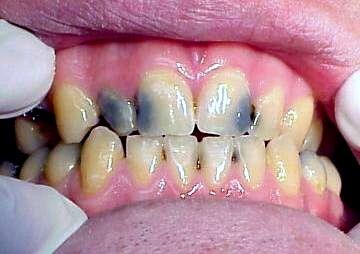 |
| Mark A. Ittleman Teaching of Talking |
 There is an interesting word in our language that is not commonly used by lay people.
There is an interesting word in our language that is not commonly used by lay people.Decay is a deterioration and occurs with teeth, roads, super highways, buildings, homes, and objects that we own. In fact, maintenance is one of the most costly financial outlays for our teeth, health, and what we own.
Decay also occurs with speech, language, and aphasia. Some people with aphasia learn new words and concepts readily, but may actually have that word, or concept decay with time. If a word or a concept is not repeated often, it may become “forgotten” or fall out of consciousness or automatic speech.
My friend who has speech therapy with me twice a week online has a mild aphasia. He has rather functional speaking but he has difficulty expressing himself and may have occasional confusion comprehending what is said to him and may also have periodic anomia or difficulty recalling a word that he wants to express. He practices the words of difficulty. He writes them down, he practices saying them each day on his commute to work (self-employed). His wife also stimulates those words intermittently when they are together.
 He says that with repetition he gets better and is able to recall the words he practices with fairly good accuracy. But…..He also states that if he does not use that word often enough….it “disappears and vanishes into thin air” and he no longer has access to it.
He says that with repetition he gets better and is able to recall the words he practices with fairly good accuracy. But…..He also states that if he does not use that word often enough….it “disappears and vanishes into thin air” and he no longer has access to it.That is why, for many with aphasia, language stimulation may need to go on indefinitely due to the tendency for word or language decay. It, like the decay of buildings or teeth must be regularly treated and maintained for best results! That is another reason why The Teaching of Talking was developed. It also teaches caregivers how to help maintain, conserve or improve the speech and language of their loved ones.
If you would like additional information about The Teaching of Talking click here: http://teachingoftalking.com/screeningtestanddocs.
To find out more about how therapists, speech language pathologists, and caregivers are learning ways to improve speaking during therapy and after it has concluded, please click here. http://www.teachingoftalking.com.
Best Regards,
Moshe Mark
Moshe Mark Ittleman, M.S., CCC/SLP
Speech Language Pathologist-Author
E-Mail: markittleman@teachingoftalking.com
Website: http://www.teachingoftalking.com
Pinterest: http://pinterest.com/markittleman/boards/
Facebook: https://www.facebook.com/moshe.mark.ittleman
Facebook: https://www.facebook.com/teachingoftalking
Amazon Author Central: http://www.amazon.com/Mark-Ittleman/e/B00F6CA73C
Moshe Mark Ittleman, M.S., CCC/SLP is a senior speech language pathologist who has worked in some of the nations’ best rehabilitation hospitals and specializes in complex speech language pathology of both children and adults. He is the author of The Teaching of Talking which helps caregivers and speech pathologists learn simple speech and language stimulation methods to help loved ones and clients talk better. He is currently residing in Southern California conducting research with The Teaching of Talking Method with those who have aphasia and teaching graduate students in speech language pathology. He guest lectures, provides online mentoring for caregivers and those with aphasia and travels internationally consulting with Rehabilitation Hospitals, Colleges, Universities and private individuals & families.
See the original article:
in

No comments:
Post a Comment